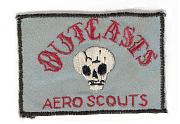The military is using a science fiction-like gadget in Iraq to help troops with few linguistic skills communicate with civilians and Iraqis training in the country's emerging police and military forces.
Called the Two-Way Speech-to-Speech Program, it's a translator that uses a computer to convert spoken English to Iraqi Arabic and visa versa.
While the program is technically still in the research and development stage, the Norfolk-based U.S. Joint Forces Command has sent 70 prototypes to Iraq, where troops are using it on the job to evaluate how well it works.
So far, so good, said Wayne Richards, chief of the command's implementation branch.
An inability to communicate with the population has been a problem for U.S. troops trying to win support. Human translators are scarce in Iraq.
The command received an urgent request in 2004 from commanders in Iraq who wanted someone to find a way to bridge the language divide, Richards said.
The device is being used today mostly for what some are calling the most important job in Iraq: training Iraq's police officer and military troops...
In its current configuration, the translator is a rugged laptop with plugs for two microphones or two headsets, Richards said, pointing to a prototype and turning it on.
It's as easy to use as talking on the phone, as was evident after a brief demonstration in Norfolk on Tuesday.
Say into the microphone, "We are here to provide food and water for your family." Hold down the E for English key on the keyboard. The written text of your words pops up on the screen.
Scan the words to make sure it picked up the exact wording. If not, change it.
Hit the T key for translate, and the sentence pops up on the screen again, this time in Iraqi Arabic. The computer then broadcasts the words aloud through the computer's speakers.
The process is almost the same going from Arabic to English...













Bookmarks